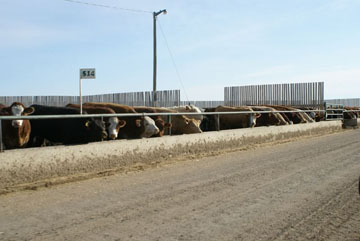Percy Schmeiser, farmer, business owner, Saskatchewan MLA 1967–71, politician (born 5 January 1931 in Bruno, SK; died 13 October 2020). Farmer Percy Schmeiser was mayor of Bruno, Saskatchewan, from 1963 to 1982 and MLA for the riding of Watrous from 1967 to 1971. He is best known as the defendant in Schmeiser v. Monsanto, which was argued all the way to the Supreme Court of Canada. Monsanto, an American agrochemicals corporation, accused Schmeiser of illegally using their patented genetically modified seeds. Schmeiser claimed they had simply blown onto his farm. He became a folk hero for his stand against a large agricultural corporation and against the use of genetically modified organisms (GMOs) in agriculture. An advocate for environmental justice, farmers’ rights, and the right to save seeds, he received the Mahatma Gandhi Award and the Canadian Health Food Association Hall of Fame Award.
Early Life and Career
Percy Schmeiser was born in Bruno, Saskatchewan, into a family of farmers and small-business owners. From a young age, Percy helped his parents, Charles and Elsie Schmeiser, with their gas station and farm implement business, as well as with the daily responsibilities of the family’s grain and mink farm. He was schooled in Bruno and then attended the Radio College of Canada, where he earned a diploma in Radio & TV Technology. He also took accounting courses and the Dale Carnegie professional development course.
Because of his training in radio technology, the defence department offered Schmeiser a job as a radio operator. He turned it down to return to the family business in 1954. He subsequently increased the size of the farm as well as the farm equipment business, expanding to two locations. He also served as an on-call technician for the Pinetree Line radar station at Sagehill, Saskatchewan (CFS Dana). (See also Early-Warning Radar.)
In 1952, Schmeiser married his wife, Louise, who was also from a farming family.

Political Career
Percy Schmeiser was a lifelong advocate for community engagement. His public service began in 1961 when he was elected to the town council in Bruno. In 1967, he was elected the town’s mayor, a position he held for more than 30 years before retiring in 1982. He was also a Liberal member of the Legislative Assembly of Saskatchewan, representing the constituency of Watrous from 1967 to 1971. During his time as an MLA, Schmeiser served on many committees. The one he was most proud of was the committee that chose Saskatchewan’s flag in 1969.
Schmeiser served his community and province in various ways. He was involved in the local chapters of the Lion’s Club and the Knights of Columbus and served two terms as director of the Saskatchewan Real Estate Commission. He returned to local politics and served another term on Bruno’s town council from 2003 to 2006.
Schmeiser v. Monsanto
In 1998, the agrochemical conglomerate Monsanto sent Percy and Louise Schmeiser a letter accusing them of using Monsanto’s genetically modified seeds without a licence. Monsanto indicated they would sue the Schmeisers for damages for “infringement of patent” totalling about $400,000. However, they also offered to withdraw the suit if the Schmeisers signed a contract agreeing to buy Monsanto’s seeds in the future and agreeing to pay a “technology use fee.” Monsanto claimed its Roundup Ready canola seeds — which were genetically modified to be resistant to Monsanto’s Roundup weed killer — had been found growing on Schmeiser’s land.
Schmeiser countered that Monsanto’s agents had illegally trespassed on his land to collect seed samples, and that the seeds had inadvertently blown onto his land, either from a passing truck or a neighbouring farm. Schmeiser had never purchased Monsanto’s seeds, but he argued that anything that blew onto his land and started growing there was his property. Schmeiser used seeds from one year’s crop to plant the next (a process called seed saving), but Monsanto required farmers to buy new seed every year — a financial burden for many farmers.
Schmeiser refused Monsanto’s offer, prompting the company to sue him. Mediation talks failed, leading Schmeiser to countersue for $10 million. He claimed the company had defamed him and polluted his fields. Monsanto used the case to test their patent on genetically modified canola, another aspect of the case that seemed like an unfair burden on an independent farmer.
The case made its way through the Canadian legal system, including the Federal Court of Canada, the Federal Court of Appeal and the Supreme Court of Canada. Ultimately, the Supreme Court decided 5–4 in favour of Monsanto, but it also decided unanimously that Schmeiser wouldn’t have to pay the company any damages. The court determined that Schmeiser had not in fact benefitted financially from the canola grown on his property from Monsanto’s seeds. Schmeiser’s countersuit was settled in 2008 with Monsanto agreeing to pay Schmeiser’s cleanup costs.
Schmeiser’s Principles
Percy Schmeiser was an advocate for environmental justice and the rights of farmers. He became a member of the International Commission on the Future of Food and Agriculture and helped draft the Manifesto on the Future of Seeds. He came up with 12 guiding food and agricultural principles for the future of farming in an age of genetically modified seeds. They are:
- All humans have a right to food or to produce it.
- Natural systems must be protected so that they can produce healthy food.
- Humans have a right to safe and nutritious food.
- No rules should prevent countries controlling food imports.
- Everyone has a right to information about how their food is produced.
- Regions should have the right to regulate their own agriculture.
- Local production and consumption should be encouraged.
- Regional biodiversity must be protected.
- Seeds are a “common property” resource.
- No life form should be patented and terminator seeds should be globally banned.
- Freedom to exchange seeds should be protected.
- Farmers should have the right for their land to be free of genetic contamination.

Honours, Awards and Legacy
For his fight against Monsanto and his advocacy for social and environmental justice, Percy Schmeiser won the 2000 Mahatma Gandhi Award. In 2004, he and his wife Louise received the Council of Canadians’ Activist of the Year Award, as well as the 2010 Advocate of Social Justice Award. They were also awarded the 2007 Right Livelihood Award for “their courage in defending biodiversity and farmers' rights, and challenging the environmental and moral perversity of current interpretations of patent laws.” In 2014, Percy Schmeiser received the CHFA Willie Pelzer Memorial Hall of Fame Award.
The story of Schmeiser’s fight against Monsanto was covered in the German-American documentary film Percy Schmeiser – David versus Monsanto (2009). It was also brought to the big screen by actor and director Clark Johnson in the feature film Percy (2020), starring Christopher Walken as Percy Schmeiser. The film opened four days before Schmeiser passed away at the age of 89.

 Share on Facebook
Share on Facebook Share on X
Share on X Share by Email
Share by Email Share on Google Classroom
Share on Google Classroom



